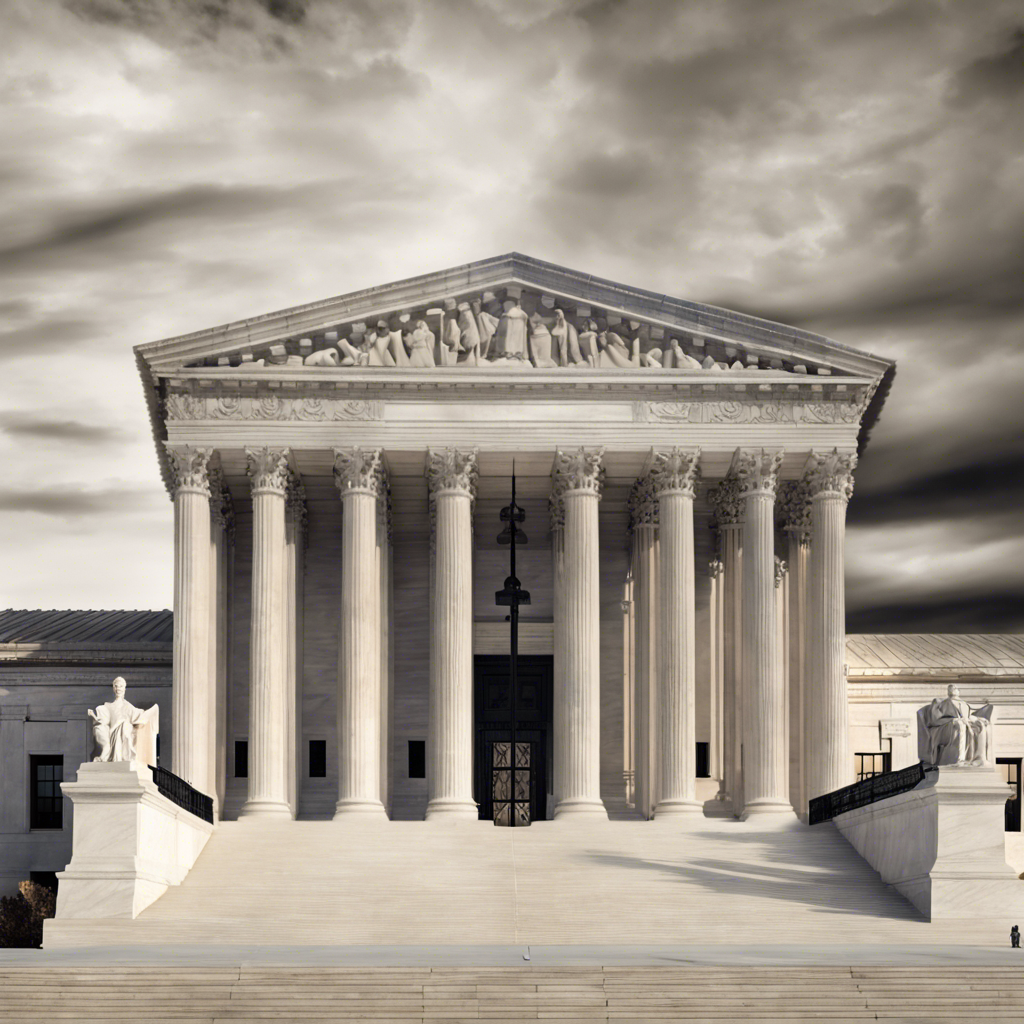US Supreme Court to Review Decision Removing Trump from Colorado Ballot

The Supreme Court will hear arguments regarding the unprecedented decision to remove former President Donald Trump from the Colorado ballot, potentially impacting the 2024 election.
The US Supreme Court has announced that it will review the Colorado Supreme Court’s decision to remove former President Donald Trump from the state’s ballot. The court has scheduled oral arguments for February 8, placing the justices at the center of the 2024 election as voting begins in the early primary contests. This marks the court’s most significant involvement in a presidential race since the Bush v. Gore decision 23 years ago. The Colorado ruling, which applies only to that state, has raised questions about Trump’s eligibility for public office and has prompted similar challenges in other states. The Supreme Court’s decision in this case will have far-reaching implications for the upcoming election.
Legal Battle Over Trump’s Eligibility
The Colorado Supreme Court’s ruling last month declared Trump constitutionally ineligible to run in 2024 due to his alleged role in the January 6, 2021, insurrection. The decision was met with controversy and sparked legal challenges in other states as well. Last week, Maine’s secretary of state removed Trump from the state’s primary ballot, and the former president’s team has appealed that decision. The Oregon Supreme Court is also expected to rule on a bid to remove Trump from the state’s primary and general election ballots. The Supreme Court’s decision to review the Colorado case is crucial in resolving the issue of Trump’s eligibility and ensuring a fair election process.
Trump’s Campaign Responds
Trump’s campaign has welcomed the Supreme Court’s decision to review the Colorado ballot challenge. Campaign spokesman Steven Cheung stated that the challenges to Trump’s eligibility are part of a “well-funded effort by left-wing, political activists” to prevent his reelection. The campaign is confident that the Supreme Court will affirm Trump’s civil rights and the voting rights of all Americans. The expedited schedule set by the court indicates that a decision will likely be made before Colorado’s primary on March 5, providing clarity for voters and candidates alike.
The Supreme Court’s Role in the Election
The Supreme Court’s involvement in the Colorado case highlights the significance of this issue in the 2024 election. The court’s decision will determine whether votes cast for Trump will count and whether he can continue his campaign for public office. The justices’ ruling will have a profound impact on the democratic process and the rights of voters. The expedited schedule chosen by the court demonstrates the urgency of resolving this matter before the primary contests begin. The three justices appointed by Trump—Neil Gorsuch, Brett Kavanaugh, and Amy Coney Barrett—will face scrutiny as they navigate this politically charged case.
Calls for Justice Thomas to Recuse Himself
Justice Clarence Thomas has faced pressure to recuse himself from the case due to his wife’s involvement in conservative activism and efforts to reverse the 2020 election results. House Democrats argue that Thomas may not be impartial in deciding whether the January 6 event constituted an insurrection. However, the plaintiffs’ attorney has stated that they have no plans to request Thomas’s recusal at this time. The court’s decision on this matter will be closely watched, as it may impact the perception of the court’s impartiality and fairness.
Conclusion: The US Supreme Court’s decision to review the Colorado Supreme Court’s ruling regarding Trump’s eligibility for the 2024 election has significant implications for the upcoming presidential race. The court’s involvement in this case underscores the importance of resolving the question of Trump’s eligibility and ensuring a fair and democratic election process. As the justices prepare to hear oral arguments, the nation awaits their decision, which will shape the course of the 2024 election and potentially redefine the boundaries of presidential eligibility.

